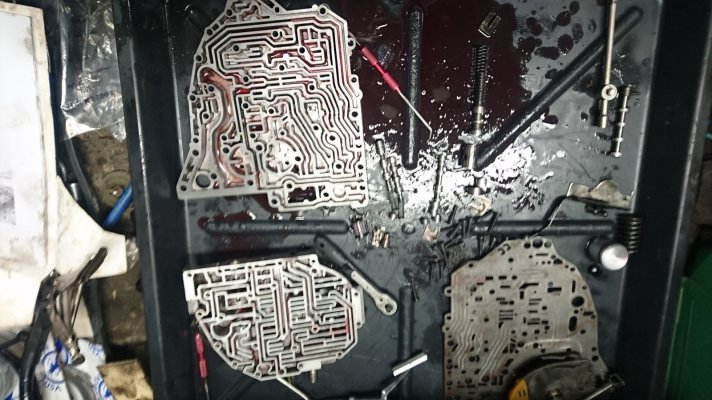nonickatall
Full Access Member
Two forms of deposits can form in a transmission. The first is abrasion of the pressure plates, which are made of steel.
This is very fine metallic abrasion that normally collects on the magnet in the pan.
The second is the friction lining of the friction disks. They have a similar structure to clutch plates in a manual transmission.
This is very fine abrasion that normally remains in suspension and is removed when the oil is changed.
It does happen that there is abrasion from the friction discs or mud in some corners. especially if you don't change the oil for a long time.
But these are usually very small amounts compared to an engine, for example.
In the attached picture for example you see a vent body of a Chrysler lebaron transmission. If you look very closely you see the small amount of deposit as dark shadows.
But thats it. From a flush, there can not be loosen deposit which damage your unit.
And again: The purpose of a flush is not to get dirt or mud out of the gearbox, but to get the oil out of all channels, oil pump, pistons, torque converter, oil cooler and so on.
This is very fine metallic abrasion that normally collects on the magnet in the pan.
The second is the friction lining of the friction disks. They have a similar structure to clutch plates in a manual transmission.
This is very fine abrasion that normally remains in suspension and is removed when the oil is changed.
It does happen that there is abrasion from the friction discs or mud in some corners. especially if you don't change the oil for a long time.
But these are usually very small amounts compared to an engine, for example.
In the attached picture for example you see a vent body of a Chrysler lebaron transmission. If you look very closely you see the small amount of deposit as dark shadows.
But thats it. From a flush, there can not be loosen deposit which damage your unit.
And again: The purpose of a flush is not to get dirt or mud out of the gearbox, but to get the oil out of all channels, oil pump, pistons, torque converter, oil cooler and so on.
Attachments
Last edited:

